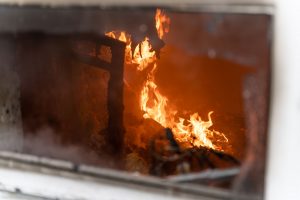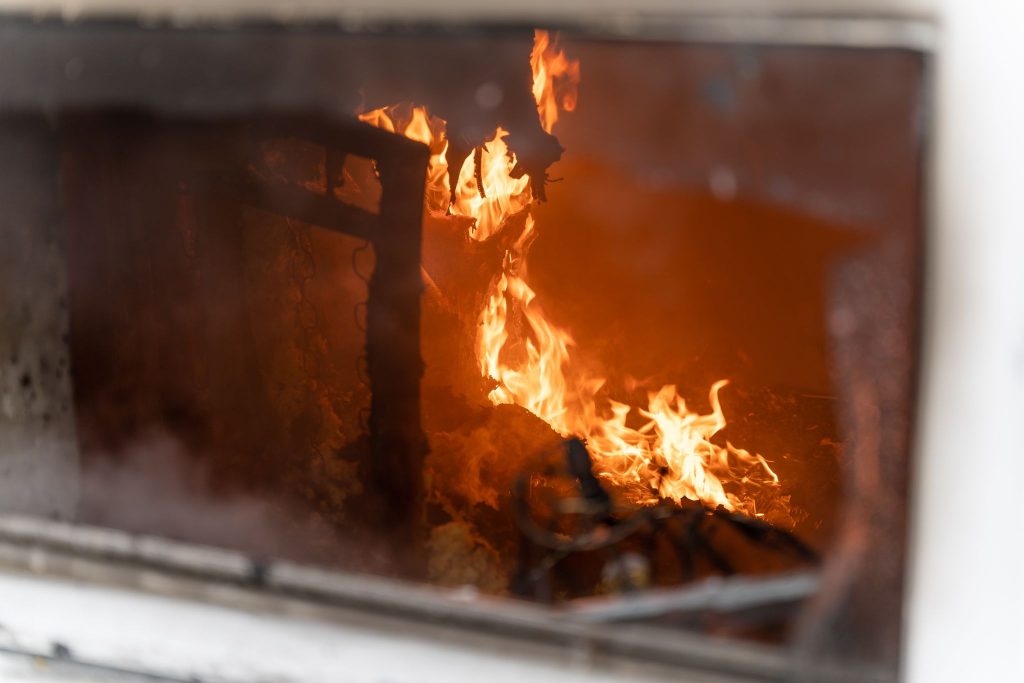Lithium Battery Safety: Huntsville Fire & Rescue, SWDA & ATF team up for campaign
Published on February 15, 2022

If you’re reading this on a cell phone, doing work on a laptop, operating power tools or even brushing with an electric toothbrush, you’re likely using a lithium battery.
While these types of batteries provide convenience in our day-to-day lives, they can cause fires or even explode if mishandled. That’s why Huntsville Fire & Rescue (HFR), the Solid Waste Disposal Authority (SWDA) and Bureau of Alcohol, Tobacco, Firearms and Explosives (ATF) National Center for Explosives Training and Research are teaming up to educate the community about lithium battery safety.
“Lithium batteries power many common items we use each day,” said HFR Chief Howard “Mac” McFarlen. “They’re rechargeable, have high energy density and pack a lot of power in a small space. While lithium batteries are generally safe to use, they can pose hazards in our homes, workplaces and community if used improperly.”
Prevent fires with these tips
With National Battery Day slated for Friday, Feb. 18, it’s a great time to talk about the role lithium batteries play in our lives and how we can use them safely.
Popular items powered by lithium batteries include cell phones, laptops, digital cameras, watches, pacemakers and other medical devices, electric cars, some children’s toys, tablets, e-readers, e-cigarettes, small and large appliances, and more.
To avoid injury, death or environmental/property damage related to improper lithium battery use, follow these simple steps:
- Only charge lithium batteries on a hard, non-combustible surface. Charging on a bed, couch or other flammable surface can cause your device to overheat, resulting in injuries and fires.
- Stay safe by using chargers and cables approved by your device’s manufacturer.
- Always keep a close eye on your charging device in case of an unexpected fire.
- Never charge a lithium battery in extreme hot or cold temperatures.
- Don’t throw lithium batteries away in garbage cans or recycling carts. Doing so may cause fires in trucks or the disposal location.
- Recycle your old lithium batteries by visiting SWDA’s Household Hazardous Waste Facility on 1055 A Cleaner Way, Huntsville. Hours of operations are 7 a.m. to 5 p.m. Monday through Friday.
Proper lithium battery disposal
SWDA Executive Director Doc Holladay said the Household Hazardous Waste Facility’s Handle with Care Collection Center is available for free to all residents of Huntsville, Madison and Madison County.
“With lithium battery-related fires on the rise, we encourage everyone to safely dispose of them by visiting the Household Hazardous Waste Facility,” Holladay said. “Our new drive-through option makes dropping off your lithium batteries or other hazardous household waste convenient and easy.”
To learn more about the Household Hazardous Waste Facility, please visit swdahsv.org/hazardous. Residents can also call 256-882-0155 during business hours for information or special assistance.

